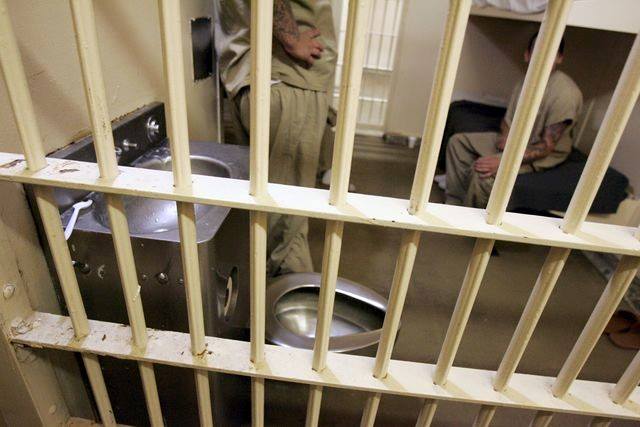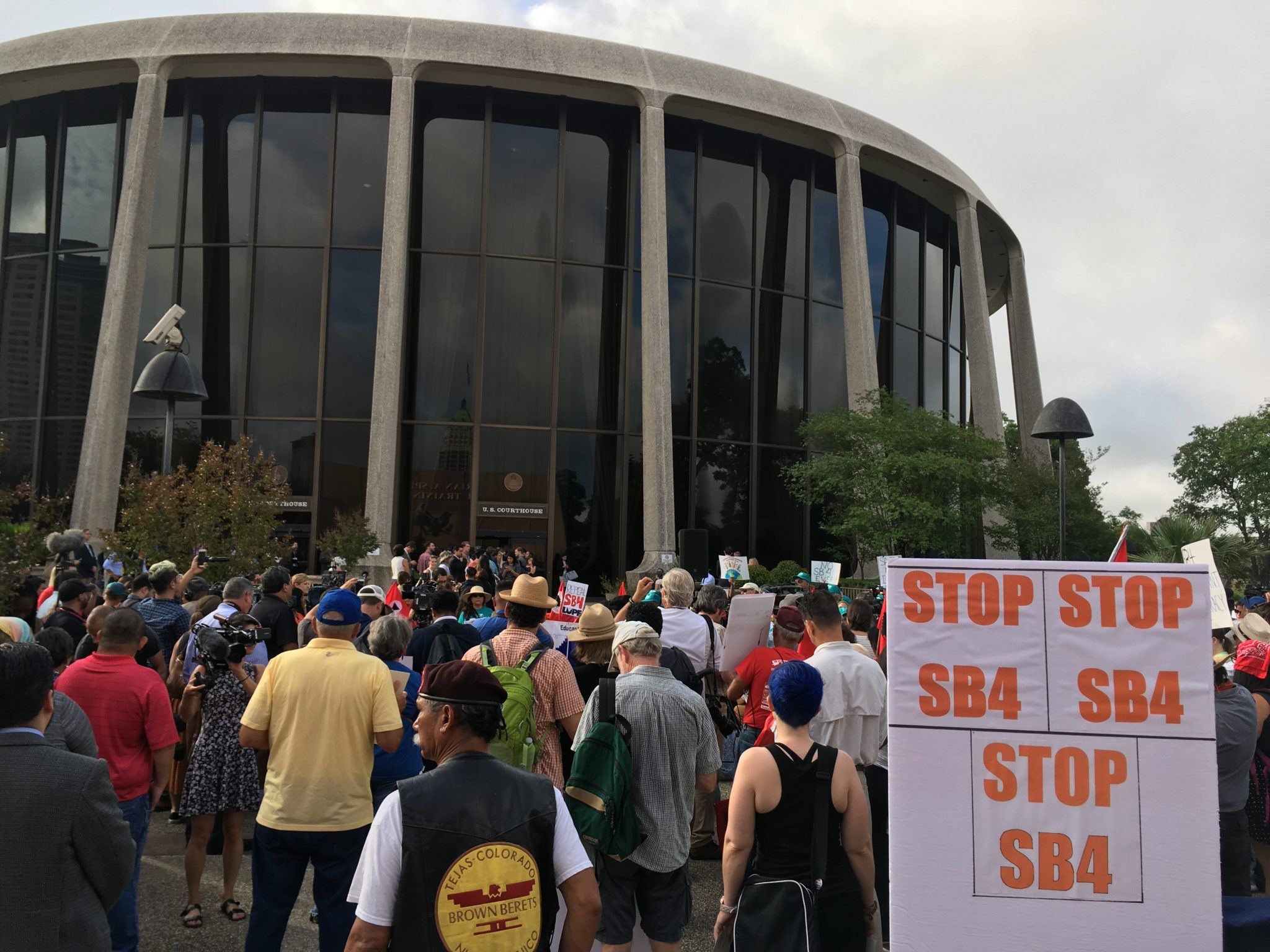
House Gives Initial Blessing to ‘Sanctuary Cities’ Bill that Threatens to Jail Sheriffs
The House softened some edges of the bill, but preserved the most controversial components of the legislation, including jailing noncompliant sheriffs.

House Speaker Joe Straus recently said “a sanctuary city bill of some sort will pass” this session, though it wasn’t immediately clear how different the legislation would be from the version of the bill that sailed through the ultra-conservative Senate in early February.
Now we have a better idea. On Wednesday, a House committee passed a version of Senate Bill 4, the so-called sanctuary cities legislation, that is almost as harsh as the Senate version. The bill cleared the committee on a 7-5 party-line vote, and opponents are still deriding the measure as anti-immigrant. Under the punitive legislation, local law enforcement would face civil and criminal penalties for declining to cooperate with federal immigration authorities.
State Representative Eddie Rodriguez, D-Austin, said despite the changes, “SB 4 is still a heavy-handed solution to an imaginary problem.”
The House proposal, authored by state Representative Charlie Geren, R-Fort Worth, preserves some of the most controversial components of the Senate version. It would still bar local law enforcement entities, including university police departments, from adopting policies that prohibit officers from enforcing immigration law.

Advocates fear that giving local cops discretion to enforce immigration laws could lead to racial profiling and the indiscriminate deportation of undocumented people. Law enforcement leaders from all five major metros in the state have voiced opposition against the bill, saying it would be costly and create a barrier to investigating violent crimes in immigrant communities.
“The parts that create the gravest concern, the parts that I think are really gonna make Texas less safe, I think they’re all about the same [in the new version],” said Matthew Simpson, a senior policy strategist for the ACLU of Texas.
The House version still requires local jails to comply with federal immigration detainers, requests from U.S. Immigration and Customs Enforcement (ICE) for jails to hold a possible undocumented immigrant for up to 48 hours. Detainers are not mandatory under federal law, and Texas county jails spent more than $60 million honoring immigration detainers in 2015.

Both chambers also now agree that sheriffs and police chiefs who don’t cooperate with ICE could be criminally charged and jailed for up to a year. Governor Greg Abbott, who listed a “sanctuary cities” ban as one of his four emergency items for the Legislature, threatened to remove Travis County Sheriff Sally Hernandez from office earlier this year after she implemented a new policy limiting her department’s cooperation with ICE detainers.
As with the Senate version, the House version states that local or campus police departments would face a civil penalty of up to $1,500 for their first violation, and up to $25,000 for subsequent violations.
The biggest changes in the latest version of the legislation would limit inquiries about immigration status only to people who have been arrested, rather than including those who were “lawfully detained.” Simpson said that change “is a moderate improvement, but I think the same problem still exists.”
“Whether the officer has to meet the burden of detaining you legally or arresting you legally, in either instance, we have local law enforcement really not being allowed by state law to be provided guidance from the local police department,” he said.
The latest House version also no longer contains a provision cutting state funding for local governments that establish “sanctuary” policies. Instead, the governor’s office would establish a competitive grant program to help local law enforcement pay for the cost of fulfilling detainer requests.
The bill also does away with the Senate’s proposal to hold local law enforcement liable for damages resulting from a felony committed by a person within 10 years of their release if the person had a detainer request that was not honored.
It also adds a section detailing a local entity’s right to be defended by the attorney general if it faces any claims “involving the good-faith compliance with an immigration detainer request,” effectively making the state liable for expenses.
The last hearing on SB 4 brought 638 people to testify on the legislation, only 11 of whom supported it. Geren said he “anticipates there to be several amendments” when the bill is heard in the full House.
“And if it comes down to a vote along party lines, my Republican colleagues will own their vote on SB 4,” Rodriguez said. “They will own the unnecessary suffering caused by the bill, the decrease in public safety, the next generation of taxpayer-backed lawsuits and the significant growth in the size and power of the Office of the Attorney General.”


